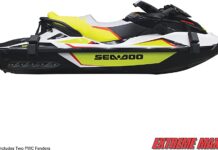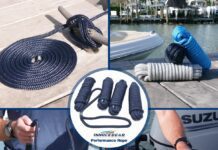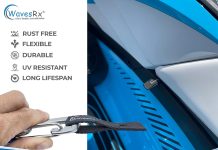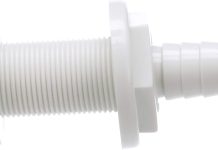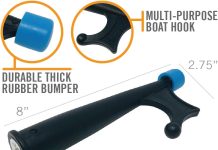Ah, the allure of the open waters and the freedom that comes with owning a boat. Whether you’re a seasoned sailor or a novice adventurer, one question that often floats through the minds of boat enthusiasts is: what adds value to a boat? We all want to know what makes our prized vessel stand out, attract buyers, and hold its worth over time. In this article, we’ll explore the factors that contribute to the value of a boat and shed light on what savvy boat owners can do to maximize its worth. So, hold on to your life jacket and prepare to set sail into the world of boat valuation!
This image is property of www.formulaboats.com.
Overall Condition
When considering the overall condition of a boat, there are several factors that contribute to its value. Firstly, the structural integrity plays a crucial role. A well-maintained and structurally sound boat will have a higher value as it ensures the safety and longevity of the vessel. Additionally, the maintenance history of the boat is another significant aspect. Regular maintenance and a comprehensive record of past servicing demonstrate that the boat has been well-cared for and can be expected to perform optimally. Lastly, the appearance of the boat also affects its value. A clean and well-presented boat will not only be more visually appealing but also give the impression that it has been well-loved and looked after.
Size and Type
The size and type of a boat are important considerations for potential buyers and can greatly impact its value. The length of the boat matters as it determines the vessel’s space and functionality. A longer boat generally offers more room for amenities and accommodations, making it more desirable. The beam, or width, of the boat is also a crucial factor as it affects stability and maneuverability. A wider beam can provide a more comfortable ride and increase the overall value. Furthermore, the hull type influences the boat’s performance and suitability for different water conditions. A well-designed hull can enhance speed, fuel efficiency, and maneuverability, making it a highly sought-after feature.
Engine and Propulsion
The engine and propulsion system are vital components of a boat and significantly contribute to its value. The type of engine installed can vary, ranging from outboard motors to stern drives or inboard engines. The engine type should be reliable, efficient, and appropriate for the boat’s size and purpose. Horsepower is another important consideration, as it determines the boat’s speed and performance capabilities. A higher horsepower engine can provide more power, making the boat more versatile and valuable. Fuel efficiency is also a key factor, as it affects operating costs and sustainability. A fuel-efficient engine lowers expenses and reduces environmental impact. Lastly, the age and hours of use of the engine should be taken into account. A newer engine with fewer hours of use is generally more valuable and likely to require less maintenance.
Navigation and Safety
Navigation systems and safety equipment are crucial for a boat’s value, as they play an essential role in ensuring the safety of passengers and the boat itself. Having reliable navigation systems such as GPS, depth finders, and radar enhances the overall functionality and navigation capabilities of the boat. These systems provide valuable information about the surroundings, allowing for safer and more efficient boating. In terms of safety equipment, the presence of features such as life jackets, fire extinguishers, and first-aid kits demonstrates a commitment to safety. Buyers place a high value on boats equipped with proper safety gear, as it instills confidence and provides peace of mind.
Communication devices are also important for boaters, particularly in emergency situations or when navigating unfamiliar waters. VHF radios or other effective communication devices ensure that communication can be established when needed. The presence of these devices enhances the boat’s safety features and adds value to the overall package.
This image is property of www.formulaboats.com.
Comfort and Amenities
Comfort and amenities are essential aspects of any boat, and they greatly influence its value. Cabin space is a key consideration, as it determines the boat’s livability and comfort during extended stays on board. A spacious cabin allows for more freedom of movement and provides a more enjoyable experience. Sleeping accommodations are another crucial factor. The presence of comfortable berths, convertible seating, or dedicated sleeping quarters adds value to the boat, as it allows for comfortable overnight stays.
Galley appliances are an important consideration for potential buyers who plan on extended cruising or spending time onboard. A well-equipped galley with a stove, refrigerator, and microwave adds convenience and increases the boat’s value. Furthermore, bathroom facilities such as a toilet, sink, and shower are highly desirable amenities. Having these facilities on board increases the boat’s livability and convenience, enhancing its overall value.
Technology and Entertainment
In today’s modern world, the presence of advanced technology and entertainment systems can significantly enhance the value of a boat. Electronics such as chartplotters, fish finders, and sonar systems not only improve navigation capabilities but also provide valuable information for fishing and other water activities. These advanced technological features increase the boat’s functionality and appeal to buyers who value convenience and efficiency.
Entertainment systems, such as audio systems and televisions, are also important considerations for potential buyers. The presence of high-quality sound systems or TVs can greatly enhance the onboard experience, providing entertainment options during extended stays or while cruising. Moreover, Wi-Fi and connectivity options are highly valued in today’s interconnected world. The ability to stay connected to the internet and easily communicate adds convenience and enhances the overall value of the boat.
This image is property of www.boat-alert.com.
Storage and Capacity
Storage and capacity are practical aspects that can greatly impact the value of a boat. Dry storage is essential for storing personal belongings, equipment, and supplies. A boat with ample dry storage space allows for easy organization, accessibility, and accommodates a greater variety of activities, making it more valuable. Additionally, live wells are important for anglers as they provide a means to keep fish alive and fresh. A well-designed and functional live well adds value for those passionate about fishing.
Seating capacity is another crucial factor to consider when assessing a boat’s value. A higher seating capacity allows for more passengers and increases the boat’s versatility and potential for social activities. Furthermore, cargo space is an important consideration for boaters who require storage for larger items, such as water toys, fishing gear, or diving equipment. The presence of ample cargo space makes the boat more practical and appealing to potential buyers.
Upgrades and Modifications
Upgrades and modifications can significantly enhance the value of a boat, depending on their quality and relevance. Engine upgrades, such as the addition of more powerful or fuel-efficient engines, can greatly enhance the boat’s performance and value. Electrical system upgrades, including the installation of modern wiring or updated electrical components, improve the boat’s functionality and safety. Custom features tailored to the owner’s preferences, such as specialized seating arrangements or unique storage solutions, add a personal touch and increase the boat’s desirability.
This image is property of www.deepsailing.com.
Brand and Reputation
The boat’s brand and reputation play a significant role in its overall value. A well-known and respected boat manufacturer is likely to produce higher-quality vessels with better resale value. Buyers often seek boats from reputable manufacturers with a track record of reliability, durability, and customer satisfaction. Additionally, the specific boat model can impact its value. Some models may be highly sought after due to their reputation, design, or performance characteristics. Lastly, maintenance records are essential in establishing the boat’s integrity and history. Boats with thorough maintenance records and a documented service history increase buyer confidence and add value to the boat.
Location and Storage
The geographical location and storage options for a boat can also affect its value. The location where the boat is currently located can impact its desirability. For example, a boat located in a popular boating destination or near desirable waterways may be more valuable due to the convenience and accessibility it provides. Additionally, the storage options available for the boat, such as slip or dry dock storage, are important considerations for potential buyers. Slip storage provides easy access to the water, while dry dock storage offers protection from the elements. The availability of suitable storage options enhances the boat’s value and appeals to buyers seeking convenience and protection for their investment.
Considering all these factors when assessing a boat’s value allows potential buyers to make informed decisions. Each aspect contributes to the overall package and determines the boat’s desirability, functionality, and market worth. Whether you are buying or selling a boat, understanding the key factors that add value will ensure a satisfying and rewarding boating experience. So, consider all these factors and find the boat that best suits your needs and lifestyle. Happy boating!
This image is property of www.formulaboats.com.







